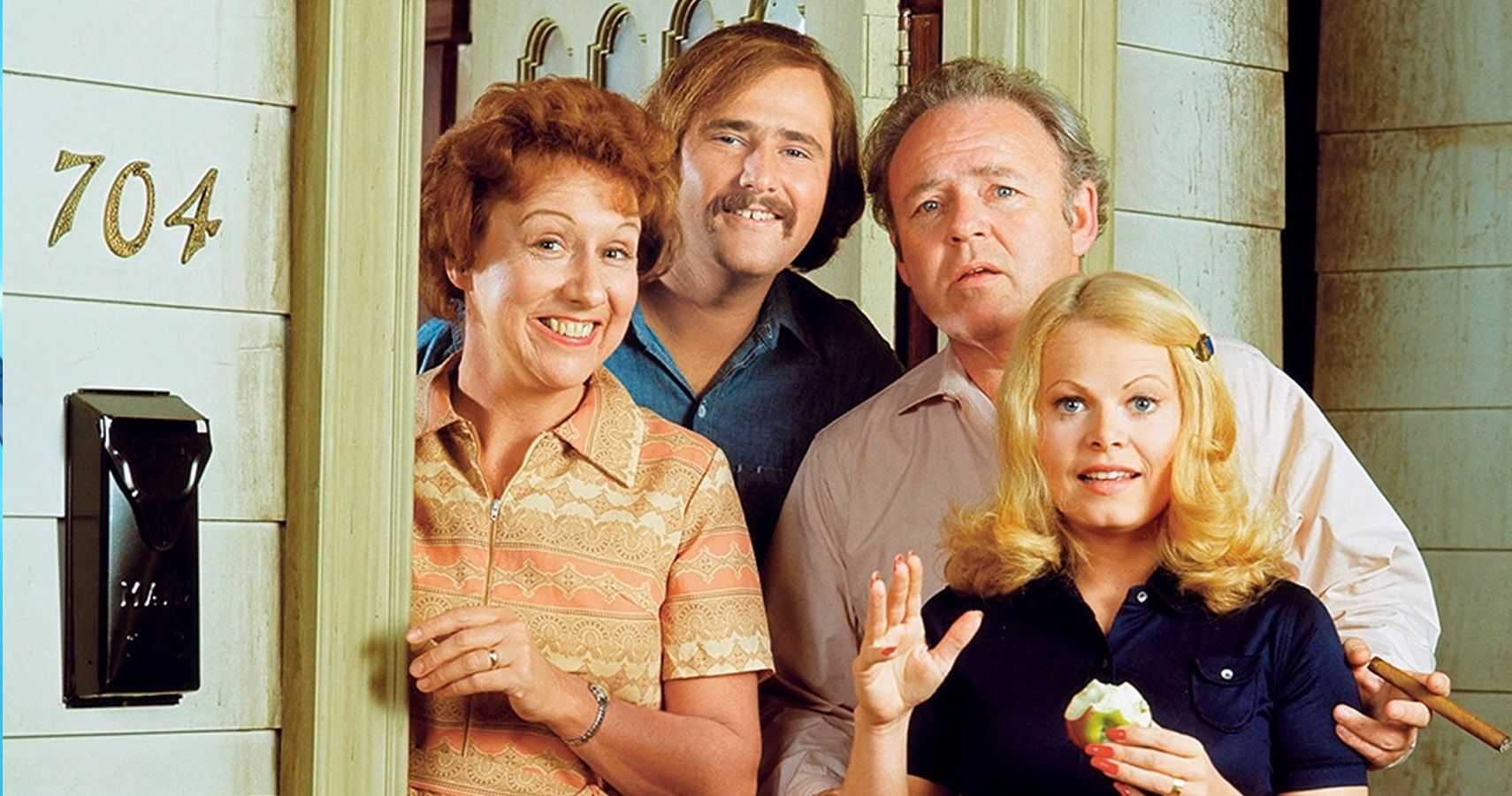Longtime viewers of All in the Family may recall that the series ended on one of its most tender notes. As Archie Bunker (Carroll O’Connor) prepared to host a St. Patrick’s Day celebration at his bar, Archie’s Place, he asked his wife, Edith (Jean Stapleton), to cook a traditional corned beef and cabbage dinner. Edith agreed without telling him she was suffering from phlebitis and had been ordered to rest. She pushed herself anyway—until her body gave out.
When Archie finally learned the truth, he phoned her doctor, who chastised him for supposedly forcing Edith to work despite her illness. For Archie, it was a jarring moment of clarity: whatever his flaws, he would never intentionally harm her.
The April 8, 1979 series finale ended with an unusually raw exchange between the couple, in which Archie openly acknowledged Edith’s importance in his life.
Behind the scenes, All in the Family was concluding largely because Norman Lear and Jean Stapleton were ready to move on. After nine seasons, CBS decided to wrap the beloved sitcom and shift Archie into his own spinoff, Archie Bunker’s Place.
Stapleton returned for just a few episodes during the spinoff’s first season, giving audiences hope she might continue in the new series. But that brief involvement led to a powerful two-part opener for season 2, which revealed Edith had died unexpectedly. The episodes, which aired Nov. 2, 1980, echoed the British series Till Death Us Do Part, the inspiration for All in the Family, where the original Edith counterpart, Else Garnett, had also been written out.
Although Edith’s death occurred off-screen, the show’s second season began with Archie still deep in denial. Viewers learned she had suffered a stroke a month earlier. Archie’s refusal to accept her absence—from shooing away a life insurance representative to ignoring her belongings—culminated in one of the most emotional scenes in the franchise’s history.
After relatives had cleared Edith’s things to donate, Archie walked into their bedroom, now starkly empty. Sitting on the bed, he noticed a lone pink slipper. He picked it up and began speaking to his late wife.
“It wasn’t supposed to be like this,” he said. “I was supposed to go first.” He admitted he’d never meant his jokes about her dying before him, and broke down recalling how he had shaken her that morning, urging her to get up and make breakfast, unaware she was gone. “You had no right to leave me like that, Edith,” he cried, “without giving me just one more chance to say ‘I love you.’”
Their niece Stephanie entered quietly as Archie grieved, and he confessed to her that Edith should have been the one to stay—because he wasn’t equipped to handle life alone.
In a 1981 interview with The Christian Science Monitor, Stapleton explained that the cast had long discussed how to handle Edith’s exit. Divorce, she said, would have been dishonest to the characters, and simply sending Edith away would leave her presence looming over the story. Her departure had to be final.
Norman Lear, however, resisted the idea. “She’s only fiction,” Stapleton once told him gently—only to be met with silence. When he finally spoke, he said, “To me, she isn’t only fiction.” Eventually, they agreed on a solution that honored Edith’s legacy: CBS contributed $500,000 to the National Organization for Women to establish the Edith Bunker Memorial Fund.
Stapleton later said she was proud of how everything resolved. The public often struggled to separate her from Edith, and giving the character a definitive goodbye helped her move forward. “An actor doesn’t play the same part forever,” she reflected. “I have no regrets. It was a wonderful chapter of my career.”
Years later, in a tribute written after Stapleton’s death in 2013, Lear recalled how the memorial fund continued to grow, driven by Edith’s symbolic power. “Even in death,” he wrote, “Edith and Jean had magic.”